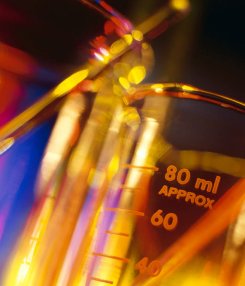

Home Page
The latest articles, features and news.


Read About...


Search Articles



Discussion Forums




|
| | |
|
2 February 2011
Natural protein suppresses growth of prostate cancer
by George Atkinson  Scientists have discovered an intriguing protein, produced naturally inside the body's cells, that appears to suppress the growth of prostate cancer cells. The finding was reported in the journal Cancer Research.
Scientists have discovered an intriguing protein, produced naturally inside the body's cells, that appears to suppress the growth of prostate cancer cells. The finding was reported in the journal Cancer Research. In the study, Imperial College London scientists found that a protein called "FUS" inhibits the growth of prostate cancer cells and activates pathways that lead to cell suicide. Looking for the FUS protein in samples from prostate cancer patients, the researchers found that in patients with high levels of FUS, the cancer was less aggressive and was less likely to spread. Higher levels of FUS also correlated with longer survival. The results suggest that FUS might be a useful marker that can give doctors an indication of how aggressive a tumor will be. "At the moment, there's no way to say whether a prostate tumor will kill you or be fairly harmless," said Dr Charlotte Bevan, senior author of the study. "These findings suggest that FUS might be able to suppress tumor growth and stop it from spreading."
Prostate cancer depends on male hormones to progress as these hormones stimulate the cancer cells to divide, enabling the tumor to grow. The researchers believe this may point to future new treatments. "FUS is a crucial link that connects male hormones with cell division. The next step is to investigate whether FUS could be a useful test of how aggressive prostate cancer is. Then we might look for ways to boost FUS levels in patients to see if that would slow tumor growth or improve response to hormone therapy," explained co-researcher Greg Brooke. Related:
Experimental treatment hits the toughest prostate cancer cells
Cholesterol Lowering Drugs Appear To Aid Prostate Treatment
No Action Sometimes The Best Option For Prostate Cancer Source: Imperial College London
|
|





